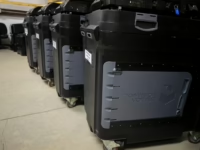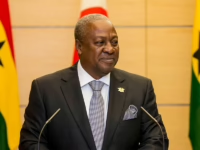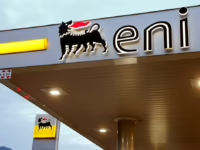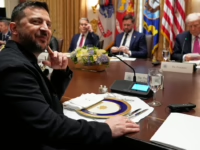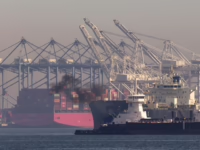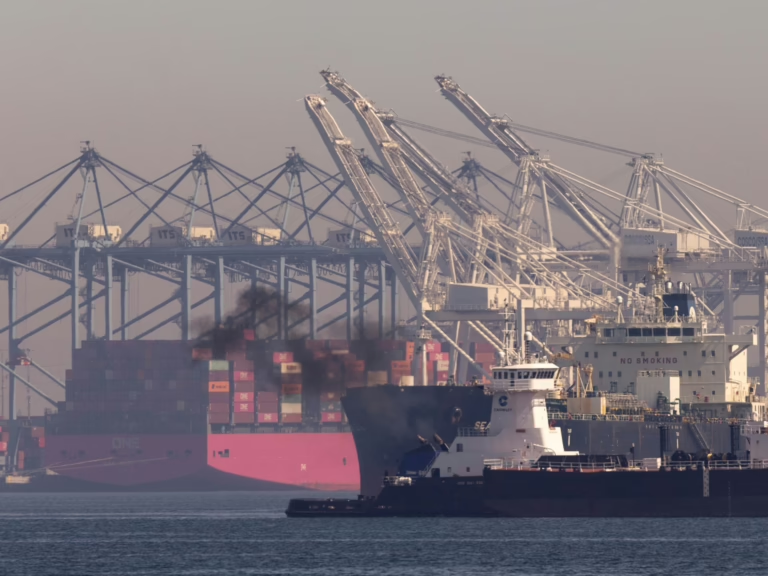Delegates at the International Maritime Organization (IMO) have decided to delay the endorsement of a comprehensive strategy aimed at reducing emissions from the shipping sector. This postponement followed a stern warning from U.S. President Donald Trump, who threatened punitive measures against nations backing the initiative.
The vote, held on Friday, effectively pushed back the implementation of the Net Zero Framework (NZF) by at least one year. This setback occurred despite the framework having received preliminary approval from IMO members in April at the London headquarters of the United Nations-affiliated agency.
The formal deferral came shortly after President Trump voiced his opposition on his social media platform, Truth Social, declaring, “I am outraged that the International Maritime Organization is voting in London this week to pass a global Carbon Tax.”
He further emphasized, “The United States will NOT tolerate this Global Green New Scam Tax on Shipping,” urging countries to reject the proposal.
In addition to vocal opposition, the U.S. threatened to impose sanctions, restrict visas, and levy port fees against countries endorsing the framework.
Prior to the London meeting, approximately 63 IMO members who had supported the plan in April were anticipated to reaffirm their backing, with additional nations expected to join the coalition to ratify the framework officially.
However, following President Trump’s public admonition, delegates opted to vote on a last-minute resolution to delay the decision, which passed narrowly with 57 votes in favor and 49 against.
The IMO, encompassing 176 member states, oversees the regulation of maritime safety, security, and environmental protection on international waters.
Since his return to office in January, President Trump has prioritized reversing U.S. climate policies, promoting fossil fuel industries through deregulation, slashing investments in renewable energy, and encouraging expanded oil and gas extraction.
A Lost Chance for Progress
A spokesperson for UN Secretary-General António Guterres described the postponement as “a missed chance for member states to set the shipping industry on a definitive and credible trajectory toward net zero emissions.”
The International Chamber of Shipping, which represents over 80% of the global fleet, also voiced its dissatisfaction.
“The maritime sector requires clear policy signals to confidently invest in decarbonization technologies,” stated Thomas Kazakos, the chamber’s Secretary-General.
Disappointed, but still very much Committed! https://t.co/7P192kAvCx
– Thomas A. Kazakos (@ThomasKazakos) October 17, 2025
Ralph Regenvanu, Vanuatu’s Minister for Climate Change, condemned the delay as “unacceptable given the urgent climate crisis we face.”
“Nonetheless, we remain confident in international law and will persist in advocating for our communities and the environment,” he affirmed.
In the lead-up to the vote, key players such as China, the European Union, Brazil, and the United Kingdom reiterated their support for the emissions reduction plan.
Conversely, nations including Russia and Saudi Arabia opposed the framework.
A Russian delegate described the session as “disorderly” during his remarks after the marathon talks extended into the early morning hours.
Notably, Argentina and Singapore, which had previously endorsed the framework in April, voted in favor of postponing the decision this week.
Had the NZF been ratified, it would have established the first-ever global carbon pricing mechanism for shipping, imposing a fee of $380 per metric ton on excess CO2-equivalent emissions while incentivizing vessels that adopt cleaner technologies.
The framework aims to assist the IMO in achieving its goal of reducing net greenhouse gas emissions from international shipping by 20% by 2030 and reaching zero emissions by 2050.
Climate change is already impacting maritime operations and crew safety, with altered ocean currents and an increase in severe weather events posing new challenges.
Strategies to decrease dependence on polluting bunker fuels include transitioning to alternative fuels like ammonia and methanol, as well as equipping cargo ships with innovative wind-assist technologies.









